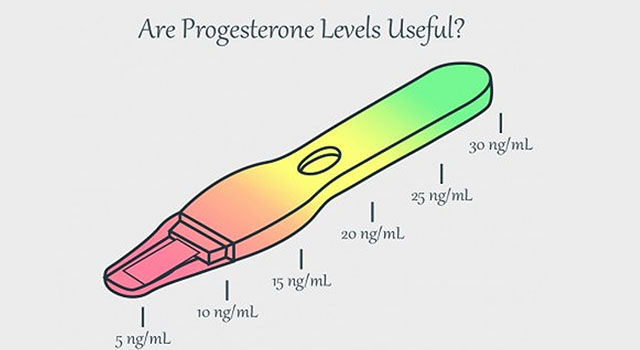
Normal progesterone levels
Progesterone levels are relatively low before ovulation, and they usually increase when an egg is released from the ovary. Levels rise for several days and either continue to rise if pregnancy occurs, or they fall to initiate menstruation.
If progesterone levels do not increase and decrease monthly, this could indicate a problem with ovulation, menstruation, or both, and it may be a cause of infertility.
Women who experience a multiple pregnancy, meaning twins, triplets, and so on, typically have naturally higher levels of progesterone than those expecting one baby.
A blood test can be used to measure progesterone levels. The results can help determine the cause of infertility, track ovulation, help diagnose an ectopic or failing pregnancy, monitor pregnancy health, or assist in diagnosing abnormal uterine bleeding.
Why do progesterone levels fall?
Progesterone levels might fall as a result of of:
- Toxemia, or toxemia of pregnancy, late in maternity
- diminished perform of ovaries
- Amenorrhea
- ectopic gestation
- Miscarriage
Why do progesterone levels rise?
Reasons for progestin levels rising might include:
- female internal reproductive organ cysts
- Non-viable pregnancies
- A rare kind of female internal reproductive organ cancer
- progestin production by the adrenal glands
- Adrenal cancer
- congenital adrenal hyperplasia (CAH)
Uses for progestin include treatment for:
- Birth control
- Hormone replacement therapy
- Menstrual disorders
- Abnormal uterine bleeding
- Amenorrhea, or absence of menstruation
- Endometriosis
- Endometrial hyperplasia, an abnormal thickening of the uterus wall
- Breast, kidney, or uterine cancer
- Changes in hair growth
- Changes in sexual desire
- Anticancer hormonal therapy
- Breast pain
- Preventing premature birth
- Acne
- Infertility treatment, when used as a cream
- Breastmilk production


